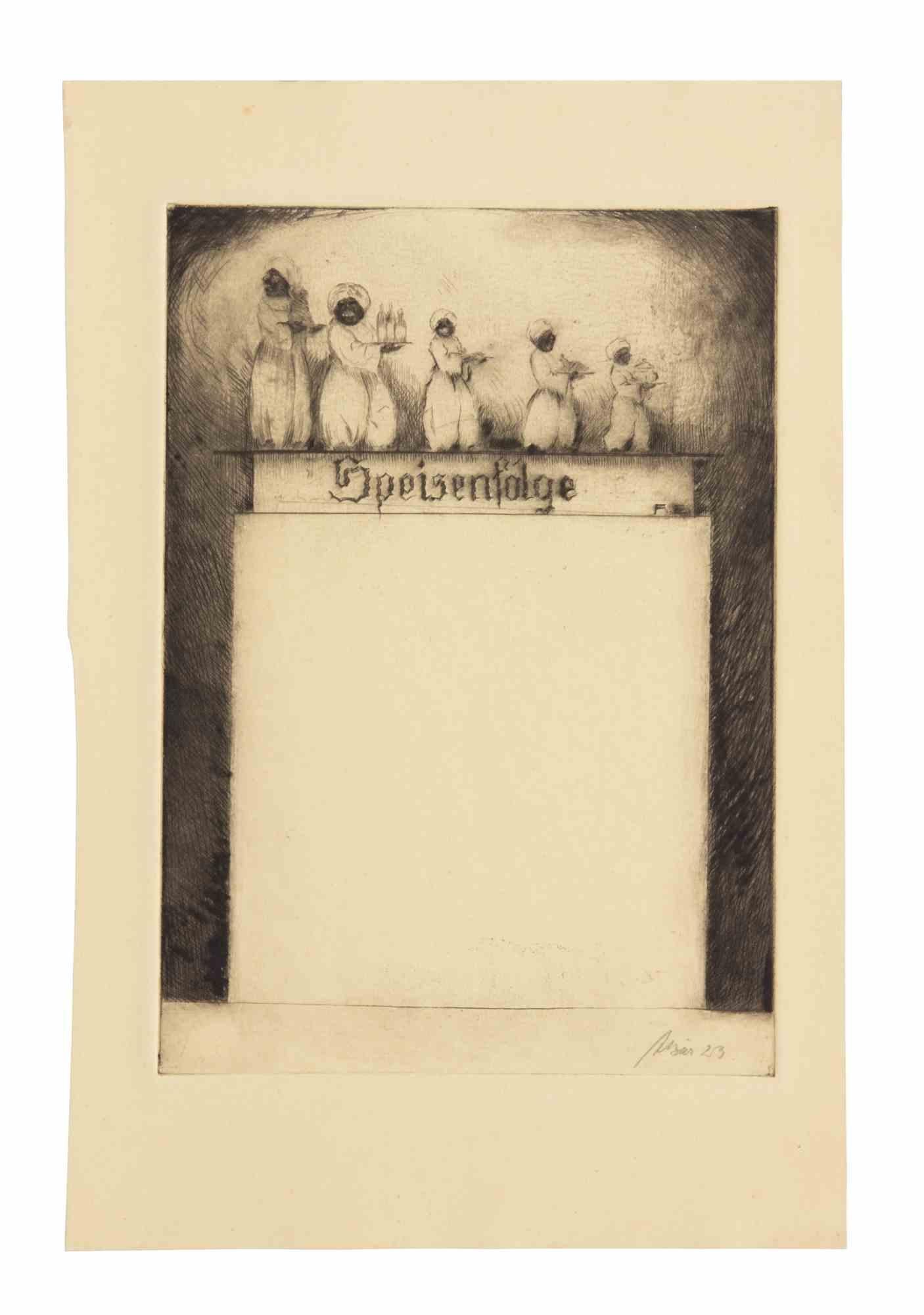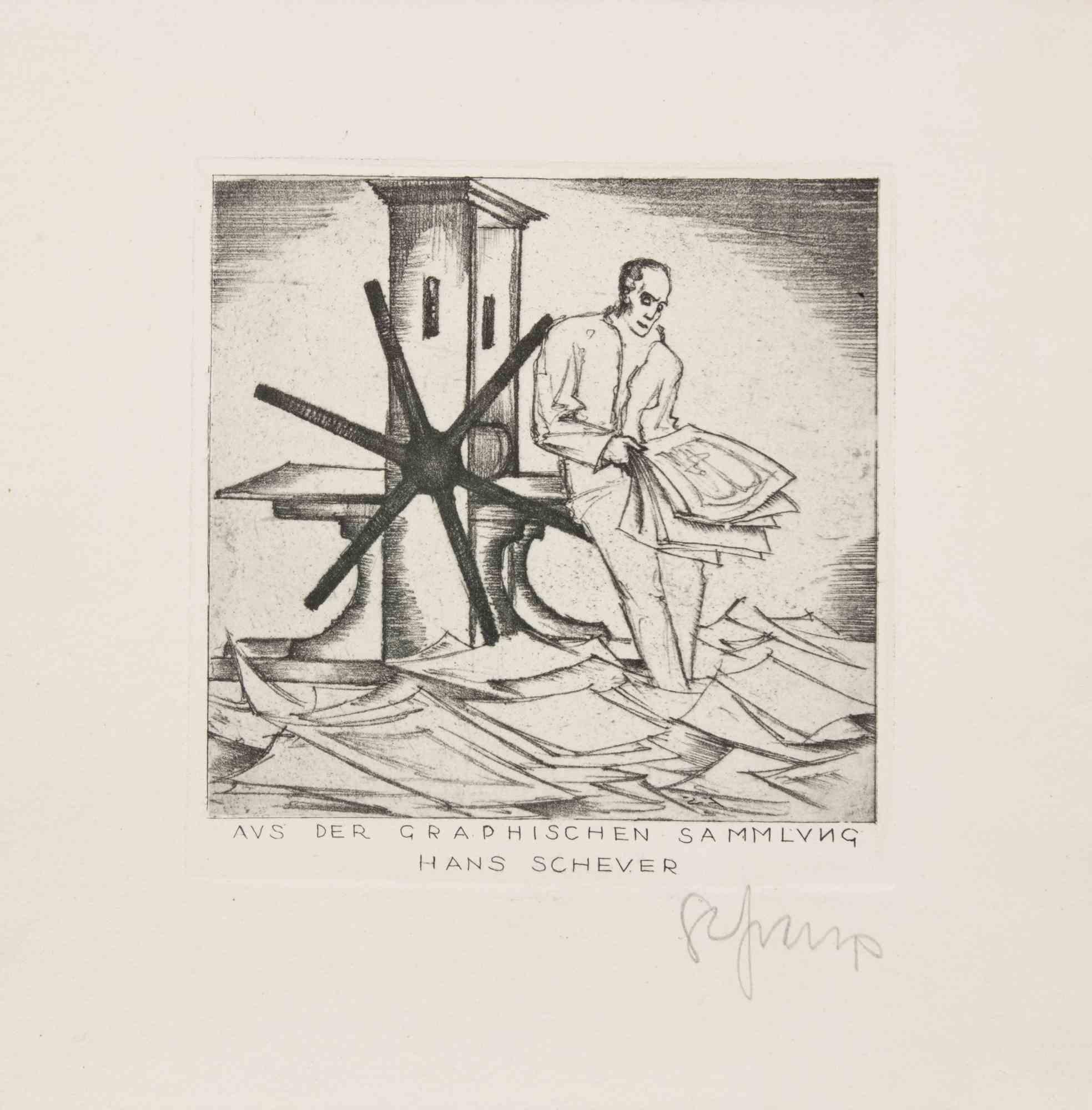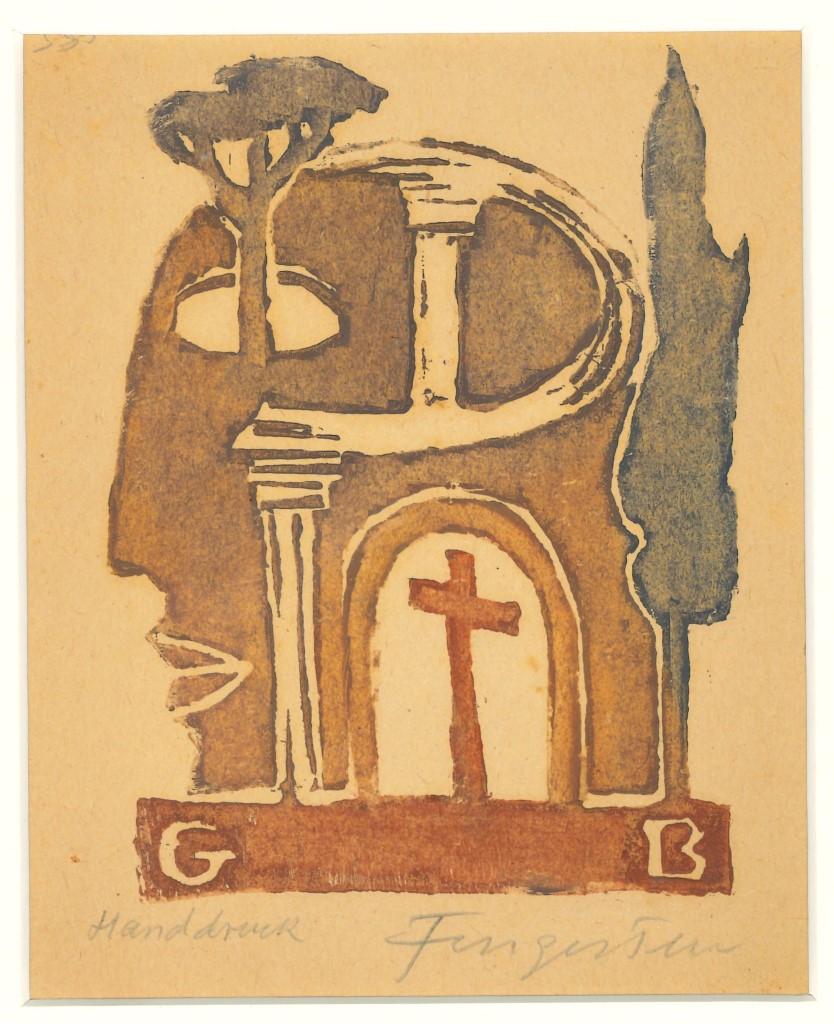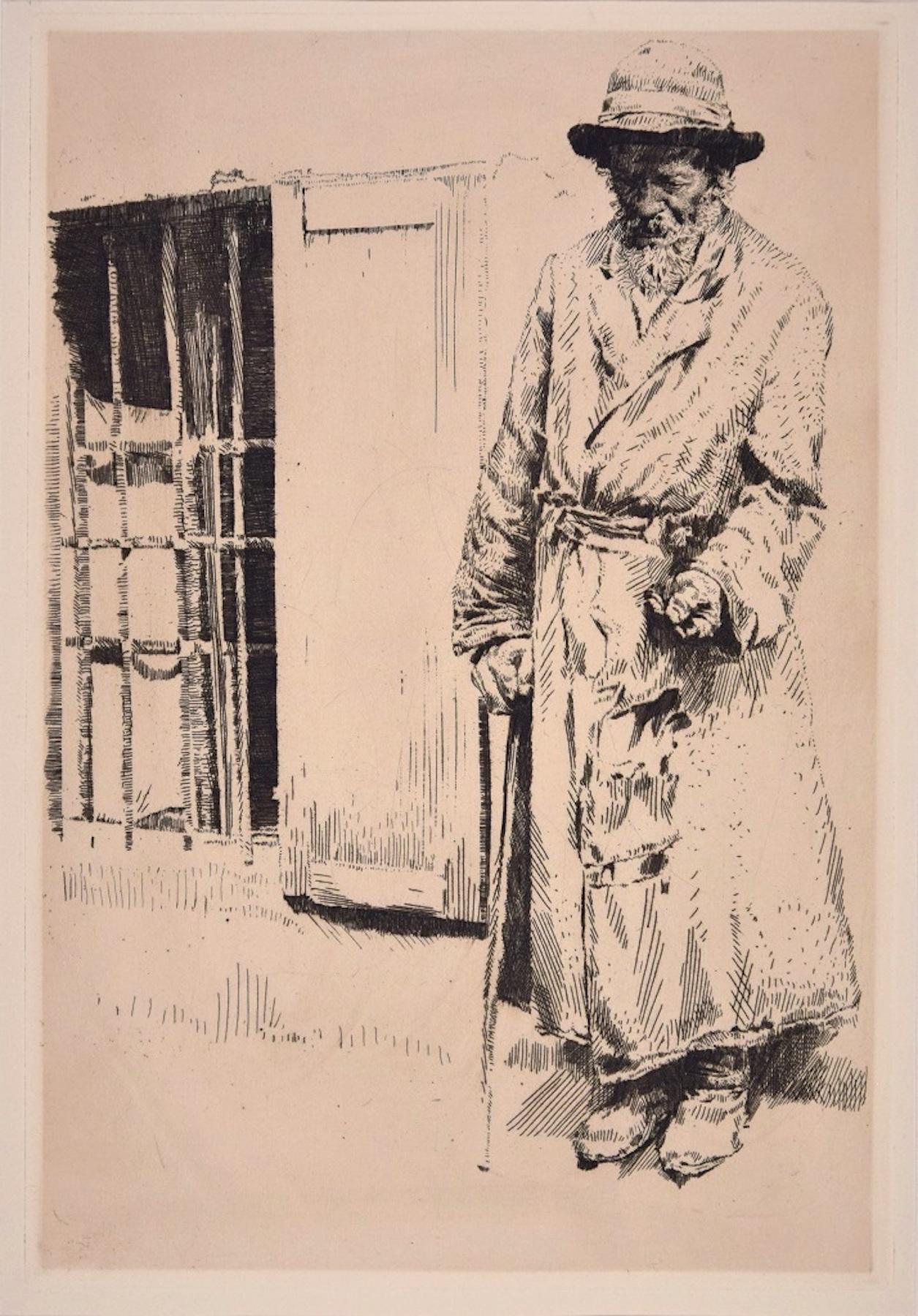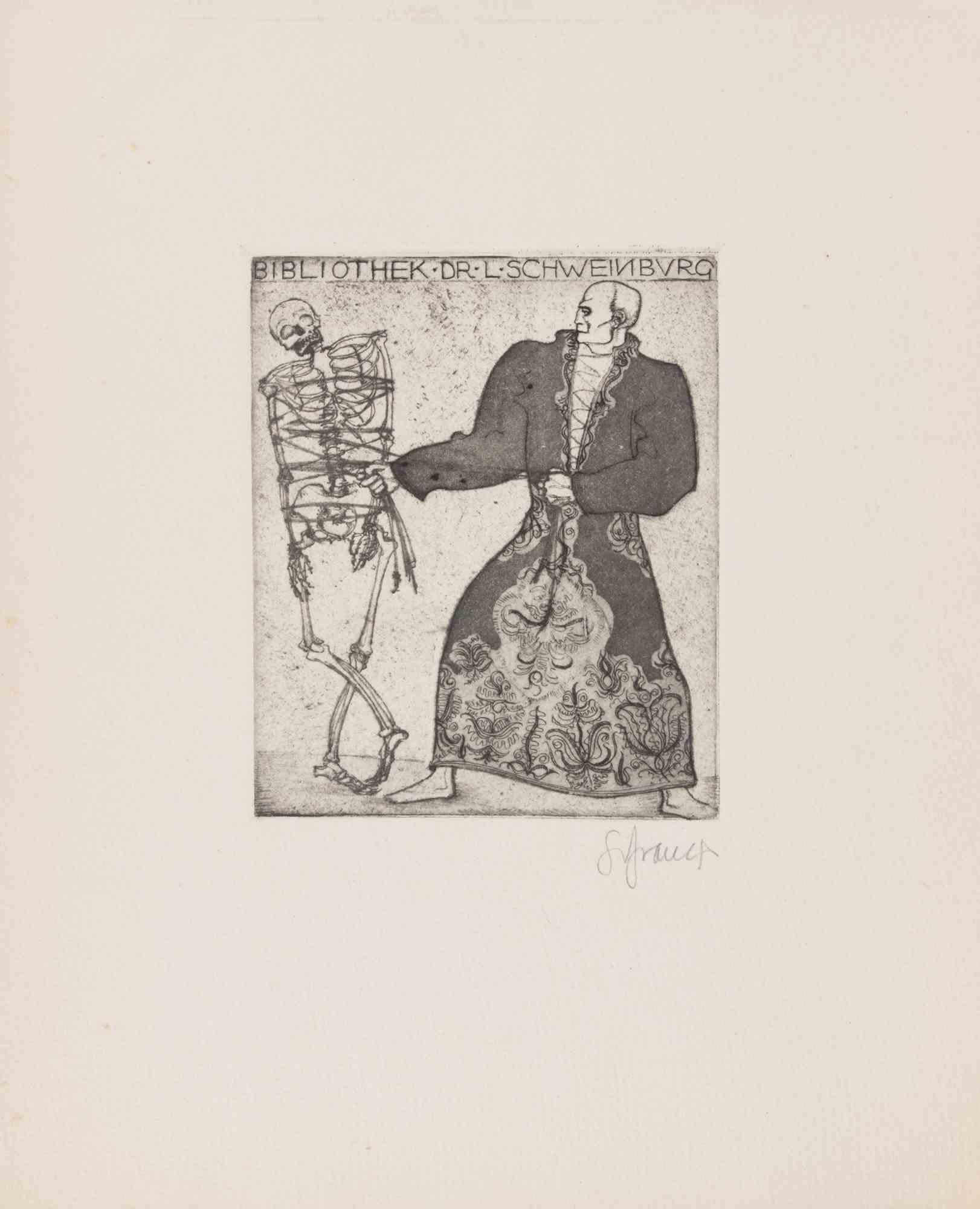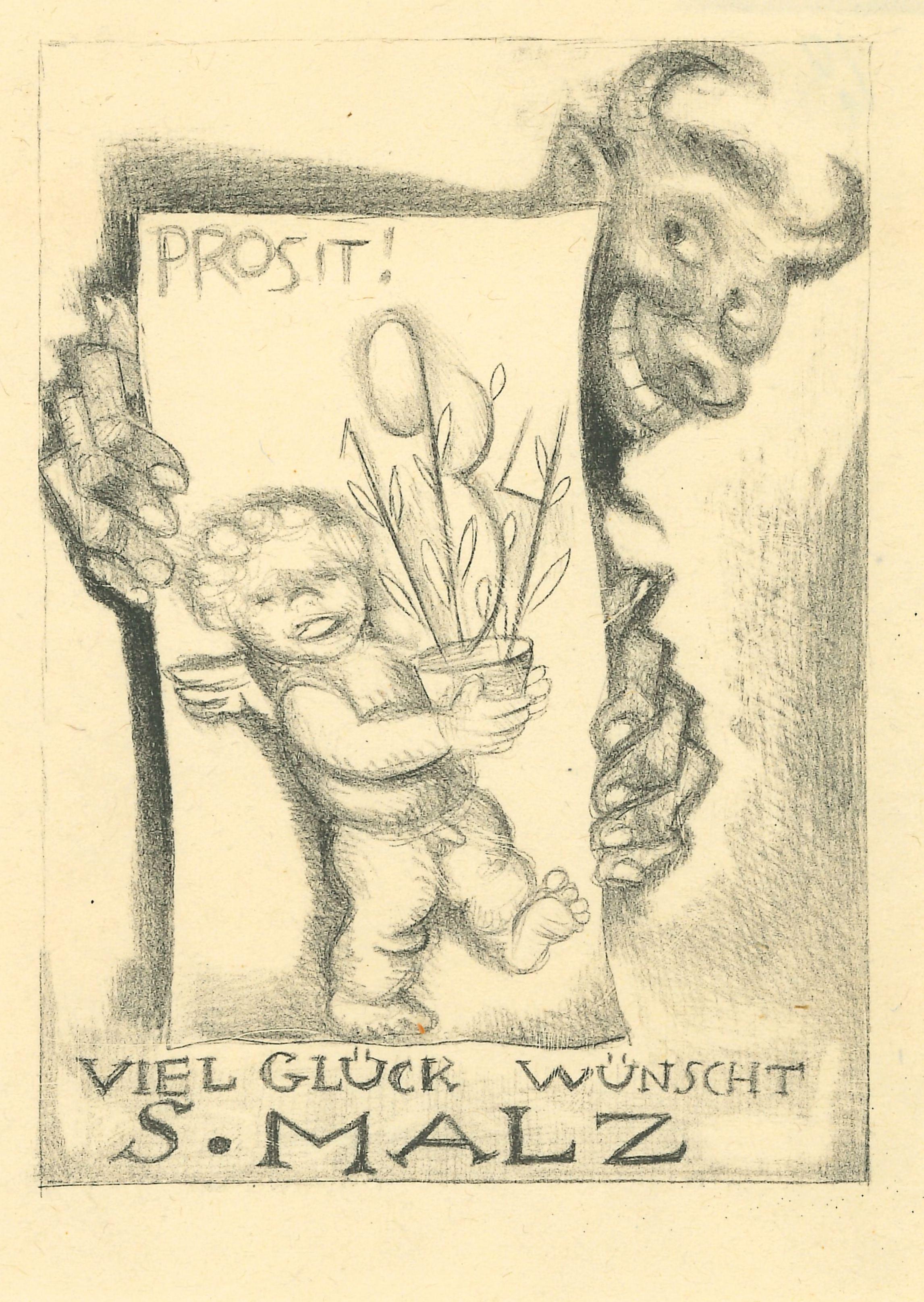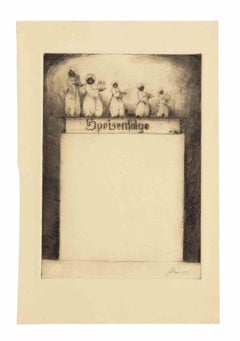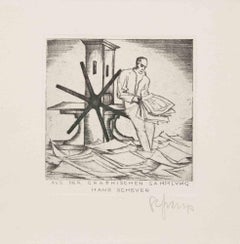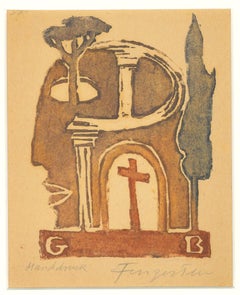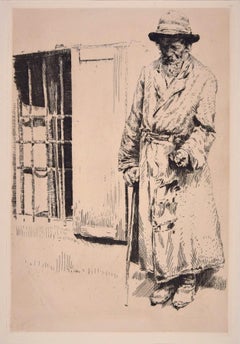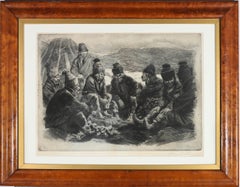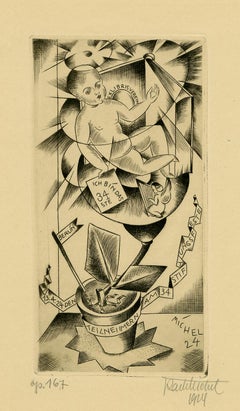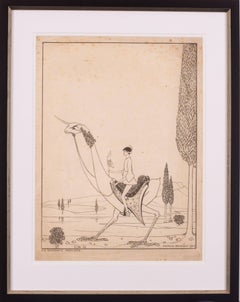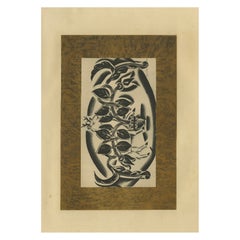Items Similar to Invitation GSMBA 1923 - Etching by Fritz Gilsi - 1923
Want more images or videos?
Request additional images or videos from the seller
1 of 3
Fritz GilsiInvitation GSMBA 1923 - Etching by Fritz Gilsi - 19231923
1923
$332.49
£252.95
€280
CA$466.44
A$508.97
CHF 263.32
MX$6,088.79
NOK 3,326.41
SEK 3,123.45
DKK 2,132.92
About the Item
Etching realized by Fritz Gilsi in 1923.
Signed in the plate.
Very good condition.
- Creator:Fritz Gilsi
- Creation Year:1923
- Dimensions:Height: 7.49 in (19 cm)Width: 5.12 in (13 cm)Depth: 0.04 in (1 mm)
- Medium:
- Movement & Style:
- Period:
- Framing:Framing Options Available
- Condition:Insurance may be requested by customers as additional service, contact us for more information.
- Gallery Location:Roma, IT
- Reference Number:Seller: T-1574261stDibs: LU650317144432
About the Seller
4.9
Platinum Seller
Premium sellers with a 4.7+ rating and 24-hour response times
1stDibs seller since 2017
7,798 sales on 1stDibs
Typical response time: 1 hour
- ShippingRetrieving quote...Shipping from: Grasse, France
- Return Policy
More From This Seller
View AllSpeisenfolge (Study for a Menu) - Etching - 1923
Located in Roma, IT
Etching realized in 1923.
Hand signed in pencil, unreadable.
Very good condition.
Category
1920s Modern Figurative Prints
Materials
Etching
Aus Der Graphischen Sammlung Hans Schever - Etching - 1920s
Located in Roma, IT
Etching and drypoint realized in 1920s. Hand signed in pencil lower right, not readable.
Very good condition.
Category
1920s Modern Figurative Prints
Materials
Etching
Ex Libris - Cross - Etching by Michel Fingesten - 1930s
By Michel Fingesten
Located in Roma, IT
"Ex Libris - Cross" is a woodcut on ivory-colorated paper by Michel Fingesten, Early 20th Century. Hand signed and with hand notes in pencil.
In excellent conditions: As good as ne...
Category
1930s Symbolist Figurative Prints
Materials
Etching
Galizischer Bletter . Original Etching by Erich Wolsfeld - 1915
Located in Roma, IT
Galizischer Bletter is a fine black and white etching on cream-colored paper, realized by Erich Wolfsfeld ( Krojanke, 1884 - London, 1956).
From the portfolio Freunde Graphischer Kunst, Leipzig, 1915.
In excellent condition, with the original cream-colored cardboard passepartout included with the drystamp of the publishing house logo "III. s" at the center on lower margin. A little rip on the lower right corner of the passepartout.
This modern original print representing a street homeless begging demonstrates a great human and pictorial sensibility and surely is an artwork conceived in his Roman period when this kind of subjects was frequent.
Erich Wolfsfeld (Krojanke, 1884 - London, 1956).
Erich Wolfsfeld learned to etch in the studio of Hans Meyer, From 1907 worked in Rome, where he met Otto Greiner...
Category
1910s Modern Figurative Prints
Materials
Etching
Ex Libris Bibliothek dr. L. Schweinburg - Etching - 1920s
Located in Roma, IT
Etching realized by Frank Sepp (1889-1970) in the 1920s.
Hand signed in pencil lower right.
Very good condition.
Category
1920s Modern Figurative Prints
Materials
Etching
Ex Libris Good Luck - Etching by M. Fingesten - 1930s
By Michel Fingesten
Located in Roma, IT
Ex Libris - Ex Libris - Good Luck is an original etching artwork realized by Michel Fingesten in the 1930s
Good conditions.
Original titled printed on plate: VIEL GLÜCK WÜNSCH S.M...
Category
1930s Modern Figurative Prints
Materials
Etching
You May Also Like
Emil Åberg (1864-1940) - Swedish School Early 20th Century Etching, The Council
Located in Corsham, GB
A striking early 0th Century etching showing a characterful group of Swedish men in traditional dress, holding council on the snowy hills of Sweden. The artist has signed in plate an...
Category
Early 20th Century Portrait Prints
Materials
Etching
'Ex Libris Verein' — 1920s German Expressionism
By Karl Michel
Located in Myrtle Beach, SC
Karl Michel, 'Ex Libris Verein' (New Year's Ex Libris Club Announcement), etching, 1924. Signed, dated, and numbered 'op. 167' in pencil. Signed and dated in...
Category
1920s Expressionist Figurative Prints
Materials
Etching
Original early 20th Century German signed lithograph by Marcus Behmer
By Marcus Behmer
Located in Petworth, West Sussex
Marcus Behmer (German, 1879 – 1958)
Die Geravbte orchidee (The robbed orchid), 1903
Signed ‘Marcus Behmer’ (lower right in pencil)
Lithograph on paper
16.1/8 x 12in. (40.8 x 30.5cm.)
It is apparent Behmer is influenced by the work of Aubrey Beardsley, though this work is no less beautiful in its execution. Little is known regarding his connections to Oscar Wilde though he is obviously an admirer and has many similarities with his private life and incarceration in prison. These works were a personal gift to Baron Detlev von Hadeln, the aristocrat and prominent art historian of the age.
Behmer is known to be, since 1903, a member in the first ever homosexual organization in Berlin and was thus probably a part of Adolf Brand’s circle, and may have contributed to Brand’s publication Der Eigene. Until now, few know that Behmer was sentenced in April 1937 by a court in Konstanz to imprisonment for two years, being arrested in Freiburg and at other locations in southern Germany for being a homosexual. At times he was given the opportunity to work as an artist in prison. The works produced in this period are mostly calligraphic designed tablets with Greek text (prayers and Bible quotes...
Category
Early 20th Century Art Nouveau More Prints
Materials
Lithograph
Programm eines Abendkonzerts, 1923: Avant-Garde Lithograph by Nathan Altmann
Located in Langweer, NL
The lithograph titled "Programm eines Abendkonzerts" (The Program of an Evening Concert) by Nathan Altman is a beautifully crafted piece from the "Jüdische Graphik" series, produced ...
Category
Vintage 1920s Prints
Materials
Paper
Pougny, Composition, Pougny, dix linogravures originales, 1914-1920 (after)
By Jean Pougny
Located in Southampton, NY
Linocut on vélin vergé ancien paper. Unsigned and unnumbered, as issued. Good condition. Notes: From the folio, Pougny, dix linogravures originales, 1964. Published by Au Vent d'Arle...
Category
1960s Cubist Abstract Prints
Materials
Linocut
$4,076 Sale Price
20% Off
Free Shipping
Eva und die Schlange, 1923: Avant-Garde Lithograph by Nathan Altmann
Located in Langweer, NL
"Eva und die Schlange" (Eve and the Snake) by Nathan Altman is anintriguing lithograph from the "Jüdische Graphik" series produced in 1923. This artwork features a compelling and symbolically rich depiction of Eve entwined with the snake, set against the same burnished gold background that characterizes other prints from this series. The use of black and white lithography enhances the dramatic interplay between the figures, highlighting themes of temptation and knowledge that are central to the Biblical story of Eve.
In this print, Altman's avant-garde sensibilities are evident in the stylization of the figures and the expressive, almost abstract forms of the snake and foliage. The inclusion of Hebrew text further anchors the piece within its Jewish cultural context, possibly adding layers of interpretation related to wisdom, sin, and redemption.
As with the other prints from this series, the limited edition of only 250 copies increases its rarity and value. Altman's work not only captures significant biblical narratives but also reflects the broader themes of cultural identity and modernist experimentation in the early 20th century. This print serves as a fascinating example of how traditional stories are reinterpreted through modernist artistic lenses, making it a valuable piece for collectors and admirers of Jewish and avant-garde art.
Altmann’s choice of a burnished gold background not only enriches the visual impact but also elevates the symbolic elements, giving the artwork a solemn and revered quality. This specific piece, like others from the series, was produced in Berlin by the publisher "Petropolis," reflecting the vibrant Jewish artistic community that existed in pre-war Europe. Altmann’s work, especially given his background as a Jewish artist in Soviet Russia, often navigated between his cultural identity and the broader avant-garde movements, making each of his pieces historically and artistically significant. This print, considering its rarity and the mystery surrounding the number of surviving copies, is an exceptional representation of Jewish cultural history intertwined with early 20th-century art movements.
Nathan Altman was an influential figure in the Russian and Soviet avant-garde movement. Born in 1889 in Vinnytsia, Ukraine, he studied at the Odessa Art School, later moving to Paris to further his education at the Academie de la Grande Chaumiere. Altman's style evolved over the years, showing strong influences from Cubism and Futurism, which are evident in his approach to stage design and book illustration as well.
Altman's contributions extend beyond visual arts; he was also notable for his set designs for Jewish theaters...
Category
Vintage 1920s Prints
Materials
Paper
